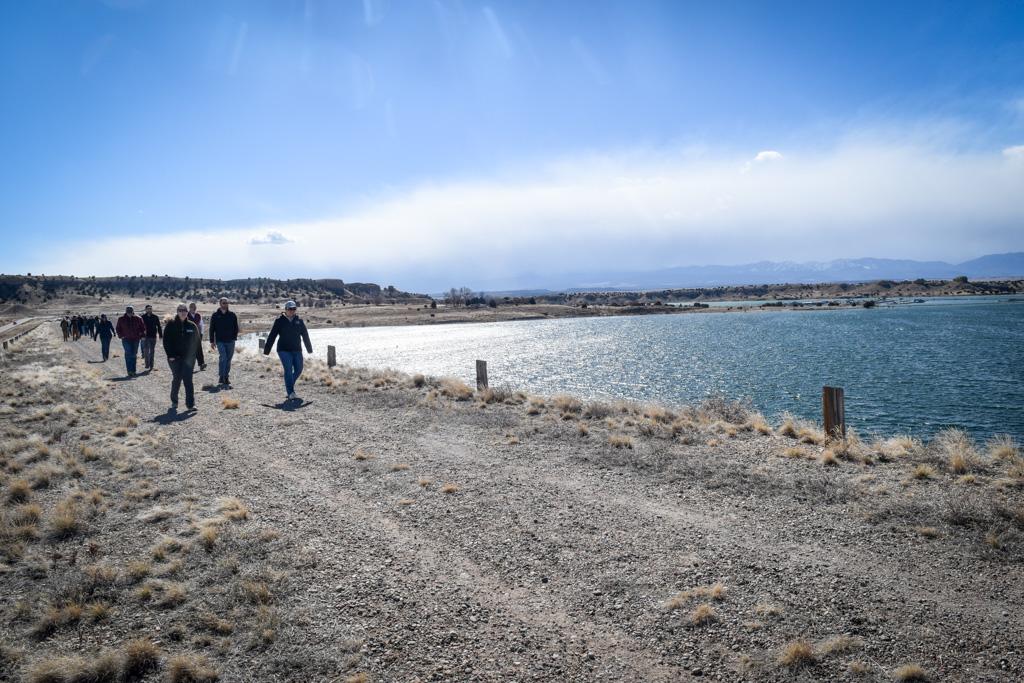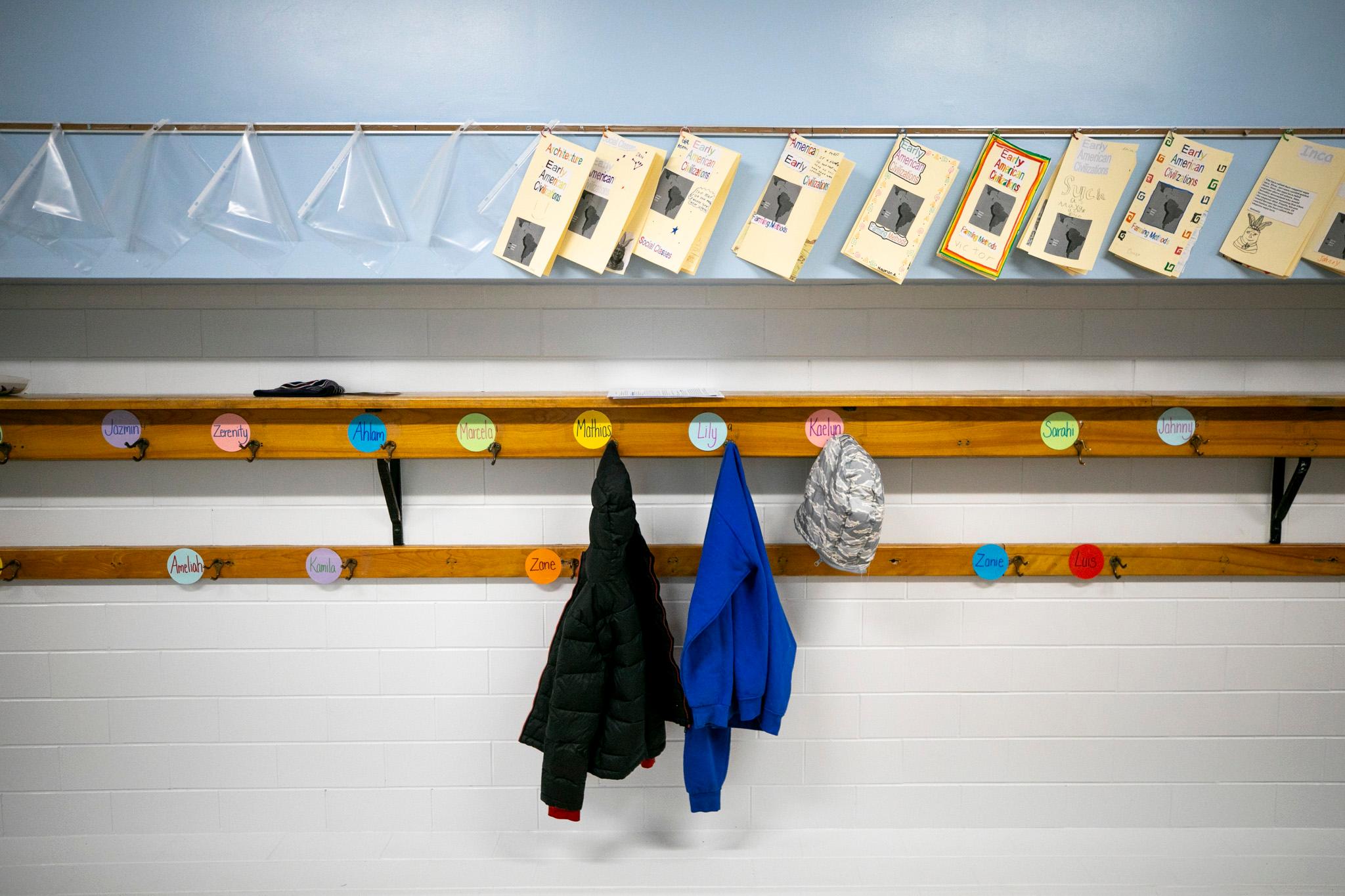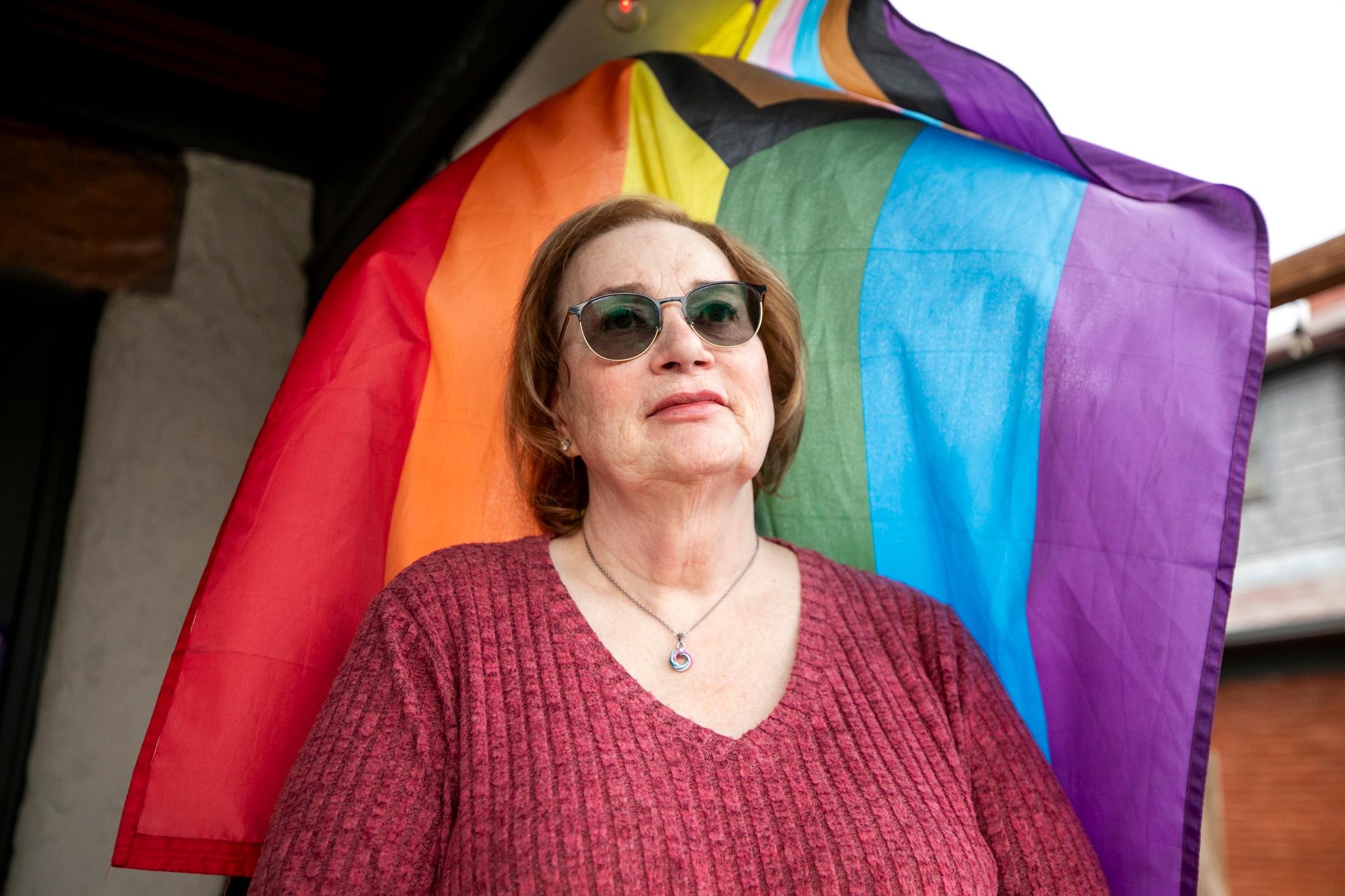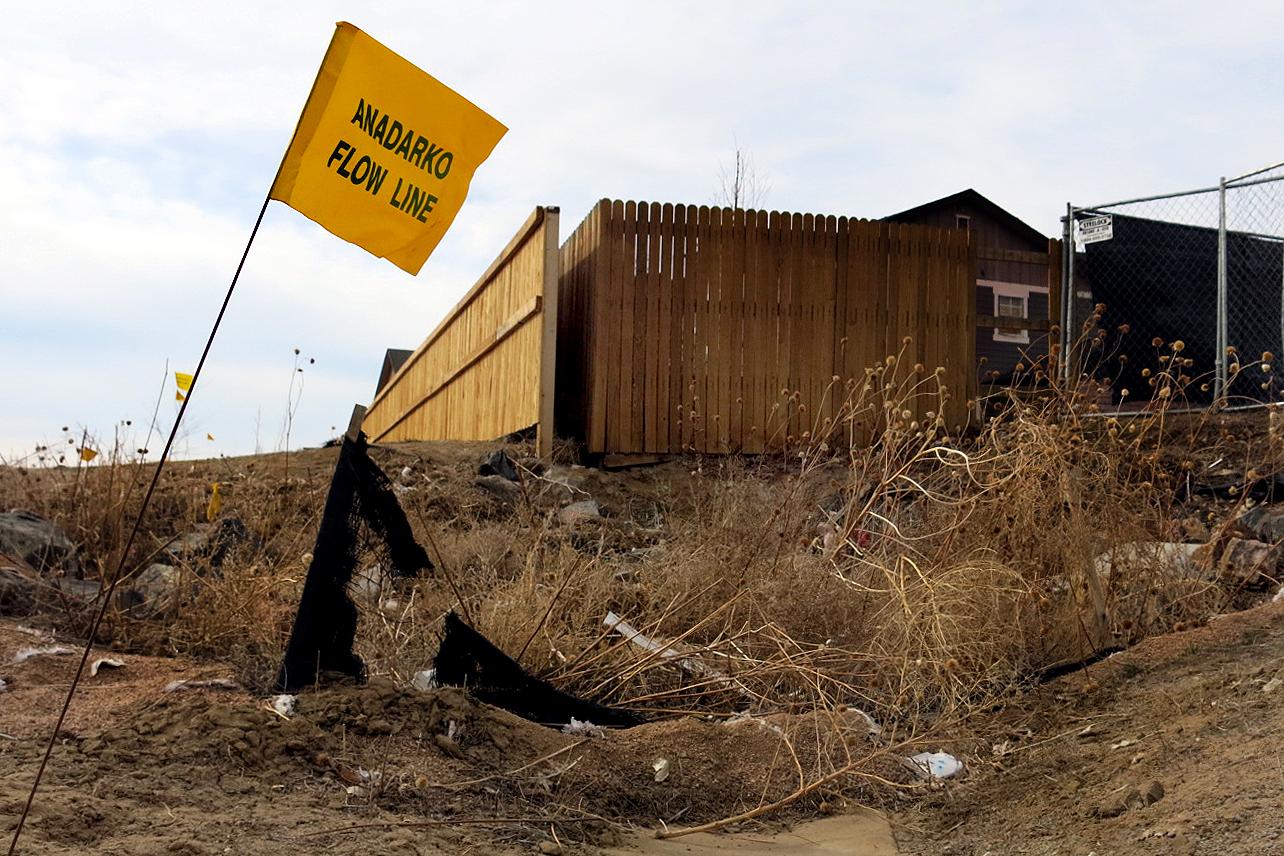
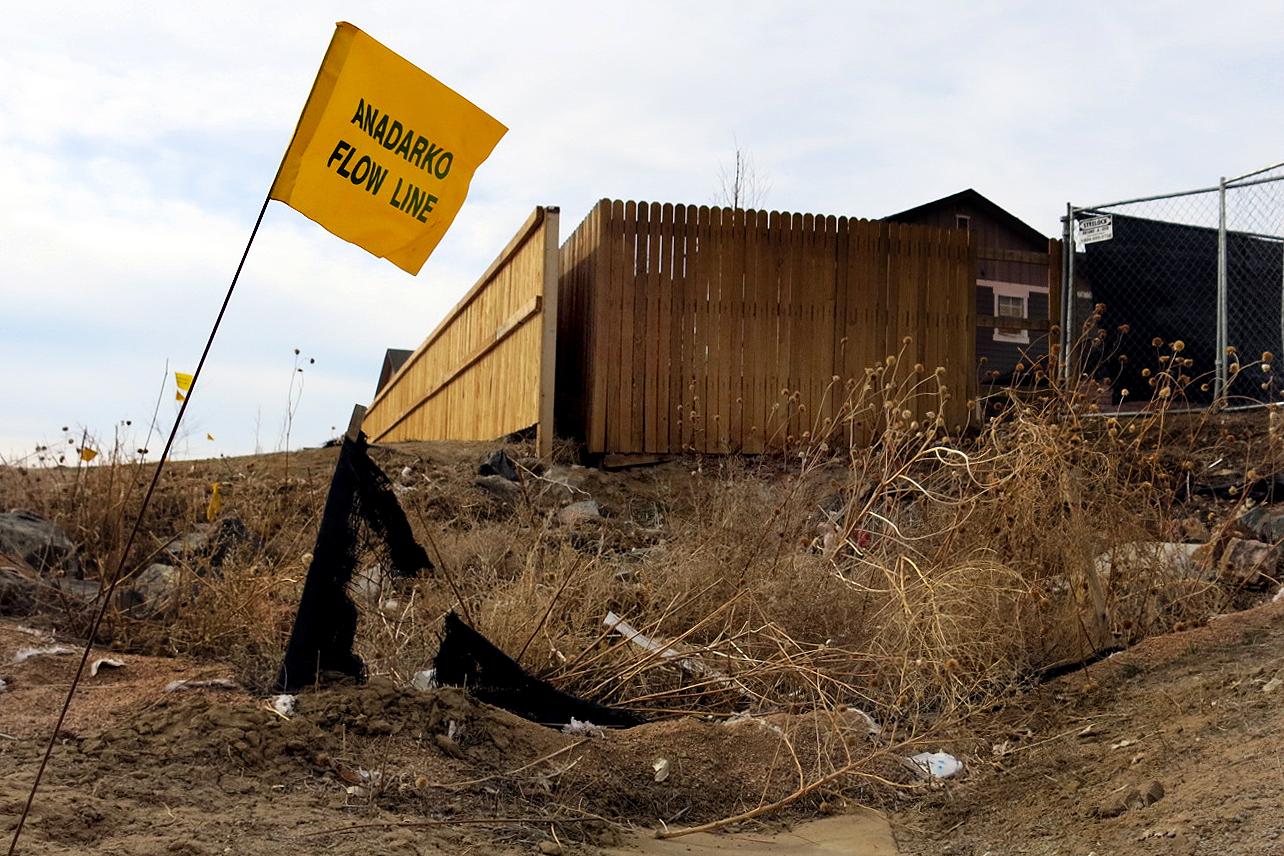
Ever since a home in Firestone exploded and killed two men last April, the state’s energy industry and its regulators negotiated and then publicly supported new safety rules for oil and gas wells in residential areas. As they’ve done that, some in the neighborhood still have questions about safety and property values, while others have moved on.
Mark Martinez and his brother-in-law Joe Irwin, both 42 years old, were killed in the Firestone blast. Martinez’ wife Erin was seriously injured.
Investigators found that a disused flowline owned by Anadarko Petroleum had carried gas from a nearby well into the soil and the Martinez home from January 2017 when it was turned back on, until the explosion in April. The line was severed at some point as the development of homes moved closer to the well. But the flowline had not been disconnected from the wellhead and capped, which allowed the gas to escape.

Fran Hoylman, who lives five doors down from the destroyed home, remembers she and her neighbors were shocked the day of the explosion.
“It was like people couldn’t even talk,” she said. “We were just with our mouths open looking at each other.”
Hoylman still walks her two dogs regularly down Twilight Avenue, where the blast happened. For a while there were charred remains on the lot. Then for months, heavy machines worked on the property. Today the land is scraped flat. A few pipes stick out of the ground. The oil and gas well belonging to Anadarko still sits behind the lot, locked up and inactive.
“I want to get out of here,” Hoylman said, reflecting on her life one year later. “That’s all I keep saying to myself. I want to get out of here. Just let me live somewhere else.”

The explosion and deaths set in motion a variety of responses.
- Flowlines, their safety and how to tell if you live near one were suddenly top of mind for a lot of Coloradans.
- Colorado was found to has nearly 129,000 underground oil and gas pipelines within about 1,000 feet of occupied buildings.
- Anadarko temporarily shut down 3,000 wells in northeast Colorado and two other energy companies followed suit.
- Gov. John Hickenlooper called for a statewide review of oil and gas operations -- but cautioned against over-regulating the the operations, while some communities began agitating for more local control over safety concerns.

Gayle Mertz, who has lived for 12 years in the Oak Meadows neighborhood where the blast occurred, said “it made some people fearful. It made some people want to put their head in the sand.”
Mertz and Holyman spent part of this past year writing letters or attending state oil and gas meetings. Mertz also convened a group of residents who met regularly and conducted a small online community survey to find out what people were thinking.
The survey showed that a primary concern was compensation for the families of the two men who died. Property values and public safety also topped the list. Home buyers should know about levels of methane and natural gas in the environment, Mertz said.
“For sales I think there should be that kind of disclosure. But to the public, we should know what’s in the air and soil where our dogs are running around [and] where our children are rolling around,” she said.
So far there’s no legislative proposal requiring any such disclosure. But Colorado regulators in February approved new rules for thousands of oil and gas pipelines. The regulations set requirements for installing, testing and shutting down flowlines, which carry oil and gas from wells to nearby equipment. They also require energy companies to report the locations of many pipelines to regulators.
While the residents had concerns about property values, homes are on the market in Oak Meadows. Data from REcolorado show a brief drop in overall Firestone home sales immediately after the explosion. But they have recovered.

Natasha Alkire and Brandon Vigil have lived just one block north of Twilight Avenue for almost three years. Last year, they intended to sell their house just after the explosion, but real estate agents “ advised us that now would be a better time since inventory is low,” Vigil said recently.
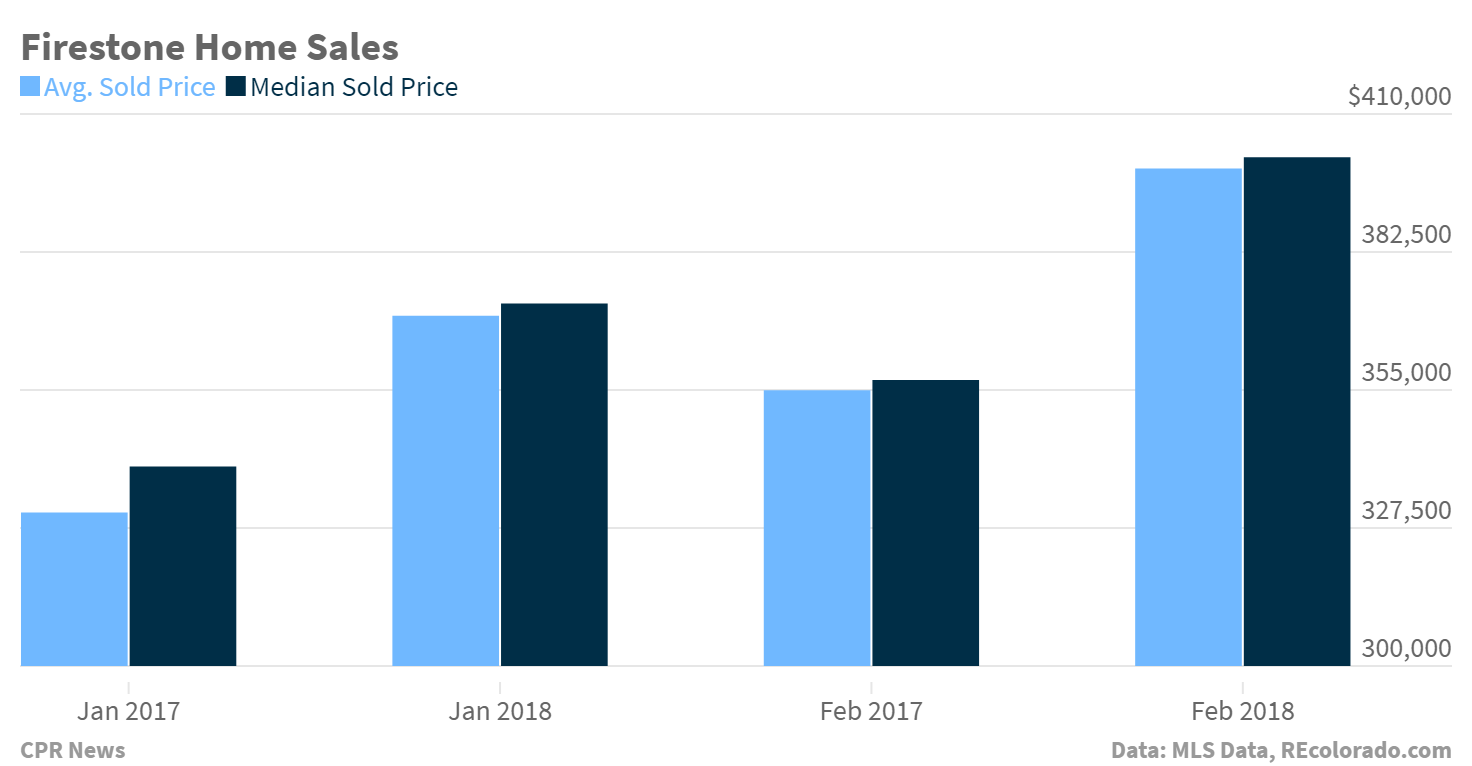
They didn’t want to leave because of fears over oil and gas lines. The main driver in their move was better commute times to jobs in Greeley and Arvada -- and the view.
“We didn’t want to step out our backyard and that’s what we see,” Alkire said.
They followed the advice to hold off listing the house, and it paid off. “We had it on the market less than three days,” before the home was under contract, Alkire said.
As Colorado’s population booms, more people move into oil country. You can even see it in Firestone, where brand new apartments stand behind the shut-down well and the lot for the former house on Twilight Avenue.
Chase Connolly, one of those new residents, says he heard about last April’s home explosion. But it didn’t stop him from moving in.
“Our apartment complexes don’t have the natural gas,” and the attendant worry, he said. “But that being said, people are definitely talking about it.”
New regulations may make flowline locations more accessible to the public. And state regulators can penalize companies for violations that lead to explosions. Enforcement actions have to happen within a year from a violation.
So far, Colorado regulators have not made any decision about penalties against Anadarko.

